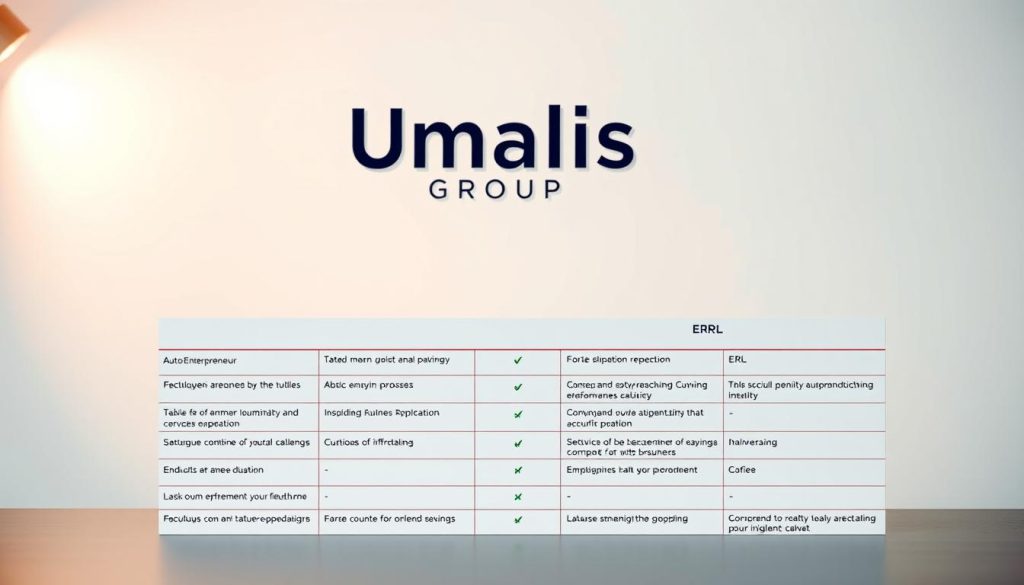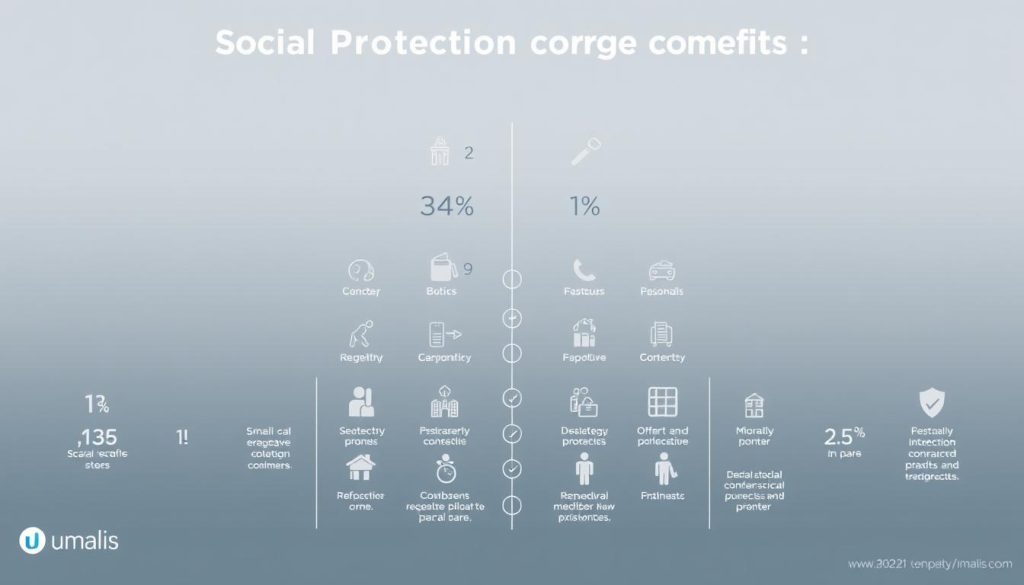Did you know that over one in five new businesses in France is started by an independent professional? This surge highlights a critical decision every freelancer and consultant faces: selecting the right legal framework.
Your choice of professional statut is one of the most impactful decisions you will make. It shapes your social protection, administrative duties, and financial flexibility. We understand this choix can feel overwhelming, but you are not alone.
This guide compares three primary paths for your activité: the simplified micro-enterprise scheme, the formal single-member limited liability company (EURL), and the unique hybrid model of portage salarial. Each offers a distinct balance of simplicity, security, and growth potential.
For instance, a detailed comparison of portage salarial and reveals how one provides employee-like benefits while the other offers minimal formalities. The optimal path depends entirely on your personal circumstances and professional ambitions.
Our goal is to empower you with clear, structured information. This knowledge helps you build a stable and secure independent career with confidence.
Table of Contents
Key Takeaways
- Your professional status significantly impacts your social coverage, administrative tasks, and financial outlook.
- Portage salarial offers a unique blend of employee benefits and freelance independence.
- The auto-entrepreneur status is the simplest to manage but has limitations on revenue and social protection.
- An EURL creates a separate legal entity to protect personal assets but requires more complex management.
- The best choice depends on your specific goals, whether testing an idea, seeking security, or planning for scale.
- Many professionals transition between statuses as their business evolves over time.
Overview of Portage Salarial and Alternative Statuses
The legal structure you adopt defines the boundaries of your professional freedom and security. We help you understand three distinct frameworks available for independent work in France.
Definition and Key Concepts
Portage salarial creates a unique tripartite relationship. You become an employee of a specialized company while maintaining complete autonomy over your professional activities. This société de portage handles all administrative and fiscal formalities.
The auto-entrepreneur regime offers France’s simplest business framework. It features streamlined accounting and capped annual revenues. This forme juridique suits those seeking minimal complexity.
An EURL establishes a separate legal entity that protects personal assets. This société structure requires more formal management but provides strong liability protection. It represents a more formal business approach.
Legal and Fiscal Context
Each statut operates under different legal frameworks. Portage salarial falls under employment law, while EURL follows commercial company regulations. The auto-entrepreneur regime has its own simplified rules.
Fiscal treatment varies significantly between these options. Portage professionals pay income tax through salary withholding. The other statuses follow distinct declaration and taxation systems.
Social security coverage differs substantially. Portage salarial provides full employee benefits under the general regime. The alternatives offer more limited independent worker protection.
These legal forms serve different professional contexts. Portage particularly suits consulting and intellectual services requiring specific qualifications. Your choice should align with your specific work nature.
portage salarial: auto-entrepreneur ou EURL ?

The core distinctions separating these three professional paths become clear when we examine five critical operational areas. We present this comparison to help you determine quel statut best matches your situation.
Your choice hinges on priorities like startup speed, social protection needs, and administrative tolerance. Each framework offers a unique blend of avantages.
| Criteria | Portage Salarial | Auto-Entrepreneur | EURL |
|---|---|---|---|
| Startup Formalities | Sign employment contract | Simple online declaration | Formal company creation |
| Social Protection | Full employee coverage | Basic independent worker | Separate regime |
| Admin Burden | Managed by the portage firm | Self-managed, simplified | Complex, requires advisors |
| Cost Structure | Percentage of revenue (~10%) | Low social charges | Fixed accounting/legal fees |
| Scalability | Focus on client work | Limited by revenue caps | High potential for growth |
Specific cas favor each option. The portage model excels for testing new activities with full security. The auto-entrepreneur statut suits small-scale ventures with maximum autonomy.
The EURL is optimal for established businesses planning to hire. The question of which path to choose between these deux statuts has no universal answer. It depends on your personal balance of security, autonomy, and ambition for your entreprise.
Administrative Management and Financial Considerations
Managing your business finances requires understanding different accounting practices across professional statuses. The administrative gestion varies dramatically, affecting your daily operations and financial transparency.
We help you navigate these differences to choose the framework that matches your comfort with financial gestion.
Accounting Practices and Banking Requirements
The portage model completely handles your accounting through the société portage. You receive a monthly salaire statement showing all deductions transparently.
This eliminates personal accounting expertise requirements. The auto-entrepreneur maintains a simple revenue ledger but handles all declarations independently.
Banking differs significantly. The EURL requires a dedicated business account, while portage allows using personal accounts with regular salary deposits.
Cost of Management and Fees
Understanding the complete cost structure is essential for your financial planning. Each status involves different frais and charges.
| Expense Type | Portage Salarial | Auto-Entrepreneur | EURL |
|---|---|---|---|
| Management Fees | ~10% of gross revenus | Minimal fixed costs | Accounting fees + advisory costs |
| Professional Expenses | Reimbursed tax-free | Limited deduction options | Deductible from company revenus |
| Social Contributions | Handled by société | Self-declared and paid | Complex calculation required |
| Initial Creation Costs | None beyond contrat | Simple registration | Capital deposit + legal frais |
Professional frais professionnels receive different treatment. In portage, eligible expenses are reimbursed without social charges.
The EURL offers deduction options but requires professional accounting. Your choice should consider both visible costs and time saved on administrative gestion.
Social Protection and Benefits Comparison

Your personal security and long-term stability depend heavily on the social safety net your professional status provides. The level of protection sociale varies dramatically, impacting your health, income, and future.
We guide you through these critical differences to help you choose the framework that best secures your professional travail and personal life.
Coverage and Insurance Differences
The most significant advantage of the hybrid model is its comprehensive employee protection. As a salarié, you benefit from the general social security régime.
This includes full health assurance with employer-subsidized complementary coverage. You also receive workplace accident and occupational illness protection.
In contrast, independent managers and micro-entrepreneurs affiliate with a separate scheme. Their health assurance is self-paid, and they lack specific workplace protections.
Unemployment, Retirement, and Other Social Benefits
The right to chômage (unemployment) benefits is a major differentiator. Salariés accumulate rights and can receive benefits if their activity ends.
Independent statuses offer no such assurance unless you purchase expensive private insurance. This represents a significant financial risk.
For retraite (retirement), the hybrid model’s employer contributions significantly boost your pension accumulation. The cotisations sociales paid provide a much more substantial future income.
Other avantages for salariés include paid vacation, professional training rights, and often executive status with enhanced benefits.
| Benefit Type | Hybrid Employee Status | Independent Manager Status | Micro-Entrepreneur Status |
|---|---|---|---|
| Unemployment Insurance (chômage) | Full rights accumulation | Not included | Not included |
| Retirement Contributions (retraite) | Base + complementary with employer share | Lower rates, requires supplementation | Minimal accumulation |
| Health & Accident Assurance | Comprehensive, employer-subsidized | Self-paid, limited coverage | Self-arranged, basic coverage |
| Professional Liability | Covered by the société‘s policy | Must be independently contracted | Must be independently contracted |
While the higher cotisations sociales in the employee model may seem costly, they purchase a level of protection sociale that is difficult to replicate independently. This provides genuine peace of mind for your career.
Project Launch and Scalability: Starting Up vs. Growing Your Business
Your ability to begin operations rapidly while planning for future growth depends heavily on the business structure you select. We guide you through these critical phases to help you choose the framework that matches your timeline and ambitions.
Startup Formalities and Initial Management
The hybrid employee model offers the fastest path to starting your professional activité. You can begin working on missions within days of signing your employment contract, with no company création formalities required.
This contrasts sharply with establishing a formal entreprise, which involves drafting legal documents, depositing capital, and completing extensive registrations. The simplified individual status falls somewhere in between, requiring personal registration but minimal upfront investment.
Business Development and Hiring Possibilities
When considering long-term growth, the formal company structure provides the most flexibility. It allows you to recruit salariés as your business develops, enabling true team building and enterprise expansion.
The hybrid model doesn’t permit direct employee hiring but facilitates collaboration with other professionals through the same service company. This enables you to assemble teams for larger projects without employment responsibilities.
Many professionals begin with the employee framework to validate their business model before transitioning to formal company création entreprise. This approach lets you build a stable client base with full security before making larger commitments.
Practical Scenarios and User Experiences
Practical scenarios demonstrate how different professionals successfully leverage each business structure. We examine real cas to help you visualize which framework aligns with your career goals.
Case Studies and Real-Life Examples
Julie, a communication consultant, chose the hybrid model to focus entirely on client missions. This allowed her to concentrate on her core activité while the société handled administrative gestion.
Marc, an experienced developer, prioritized security for his substantial chiffre affaires. As a salarié porté, he gained comprehensive protection while maintaining professional autonomy.
Léa’s situation involved short-term projects where immediate rémunération mattered most. The simplified individual statut provided optimal flexibility for her limited engagements.
Lessons Learned from Early Adopters
Many salariés portés discover that combining frameworks offers strategic advantages. They maintain simplified status for certain activities while using employee benefits for primary travail.
Early adopters demonstrate that professional evolution often involves transitioning between structures. As chiffre grows, many move toward formal entreprise creation.
These real exemple show that the optimal choice depends on your current activité level and long-term vision for business development.
Conclusion
The path to successful independent work begins with selecting a statut that aligns with your priorities and ambitions. Your choix depends on balancing security needs with administrative capacity and growth plans.
If comprehensive protection and minimal gestion burden are your priorities, the employee model offers significant avantages. This approach provides full social coverage while letting you focus on client missions.
For those valuing simplicity and direct control, the simplified individual status may suit your activité. It works well when your chiffre d’affaires remains below established caps.
Remember that your professional statut can evolve as your business grows. Many begin with one framework and transition as their entreprise matures and needs change.
Carefully weigh your current situation against future goals. The right forme supports both immediate needs and long-term success in your independent career.
FAQ
What is the main difference between portage salarial and being an auto-entrepreneur?
The core distinction lies in your professional status. With portage salarial, you operate as a salaried employee of a portage company, benefiting from full employee protection sociale. As an auto-entrepreneur, you are a sole proprietor, responsible for your own gestion and social charges, with a simplified but limited régime.
How does social protection, like health insurance and retirement, compare between these statuses?
A: Portage salarial provides comprehensive coverage identical to a standard contrat de travail, including assurance maladie, retraite, and even chômage rights. The auto-entrepreneur status offers a basic level of protection, and you must often arrange supplemental insurance for complete coverage, which impacts your net revenus.
Which option is better for someone just starting their independent activity?
For a quick and simple création with minimal initial frais, the auto-entrepreneur status is often easier. However, if you value immediate protection sociale and stability from day one, portage salarial is a safer choice, acting as a bridge to independence without the administrative burden.
Are there limits on my earnings with either structure?
Yes. The auto-entrepreneur régime has a ceiling on annual chiffre d’affaires. Exceeding this limit requires transitioning to a more complex statut like an EURL. Portage salarial typically does not have such revenue caps, making it more scalable for high-earning missions.
How are professional expenses handled in portage salarial versus as an auto-entrepreneur?
As an auto-entrepreneur, you deduct frais professionnels from your taxable income, but the system is simplified. In portage salarial, the portage company typically manages the reimbursement of justified business expenses directly, simplifying your financial gestion.
Can I hire employees under either of these statuses?
The auto-entrepreneur status generally does not permit hiring salariés. If your business grows and requires a team, you must change your legal forme. An EURL, which is another alternative, does allow for hiring. Portage salarial does not involve hiring, as you are the employee.
What happens if I lose my main client? Is there any safety net?
This is a key avantages of portage salarial. If you lose a client, you may be eligible for unemployment benefits (chômage) through the portage company, providing a crucial safety net. As an auto-entrepreneur, there is no such protection; your revenus stop entirely without work.





